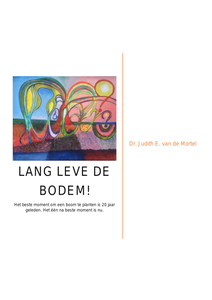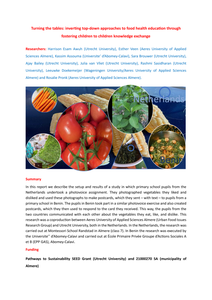The increased cultivation of highly productive C4 crop plants may contribute to a second green revolution in agriculture. However, the regulation of mineral nutrition is rather poorly understood in C4 plants. To understand the impact of C4 photosynthesis on the regulation of sulfate uptake by the root and sulfate assimilation into cysteine at the whole plant level, seedlings of the monocot C4 plant maize (Zea mays) were exposed to a non-toxic level of 1.0 µl l−1 atmospheric H2S at sulfate-sufficient and sulfate-deprived conditions. Sulfate deprivation not only affected growth and the levels of sulfur- and nitrogen-containing compounds, but it also enhanced the expression and activity of the sulfate transporters in the root and the expression and activity of APS reductase (APR) in the root and shoot. H2S exposure alleviated the establishment of sulfur deprivation symptoms and seedlings switched, at least partly, from sulfate to H2S as sulfur source. Moreover, H2S exposure resulted in a downregulation of the expression and activity of APR in both shoot and root, though it hardly affected that of the sulfate transporters in the root. These results indicate that maize seedlings respond similarly to sulfate deprivation and atmospheric H2S exposure as C3 monocots, implying that C4 photosynthesis in maize is not associated with a distinct whole plant regulation of sulfate uptake and assimilation into cysteine.
DOCUMENT
Common cloning is often associated with instability of certain classes of DNA. Here we report on IS1 transposition as possible source of such instability. During the cloning of Arabidopsis thaliana gene into commercially available vector maintained in widely used Escherichia coli host the insertion of complete IS1 element into the intron of cloned gene was found. The transposition of the IS1 element was remarkably rapid and is likely to be sequence-specific. The use of E. coli strains that lower the copy number of vector or avoiding the presence of the problematic sequence is a solution to the inadvertent transposition of IS1. The transposition of IS1 is rare but it can occur and might confound functional studies of a plant gene.
DOCUMENT

Inoculation of maize silage with Lactobacillus buchneri (5 × 105 c.f.u. g-1 of maize silage) prior to ensiling results in the formation of aerobically stable silage. After 9 months, lactic acid bacterium counts are approximately 1010 c.f.u. g-1 in these treated silages. An important subpopulation (5.9 × 107 c.f.u. g-1) is able to degrade 1,2-propanediol, a fermentation product of L. buchneri, under anoxic conditions to 1-propanol and propionic acid. From this group of 1,2-propanediol-fermenting, facultatively anaerobic, heterofermentative lactobacilli, two rod-shaped isolates were purified and characterized. Comparative 16S rDNA sequence analysis revealed that the newly isolated bacteria have identical 16S rDNA sequences and belong phylogenetically to the L. buchneri group. DNA-DNA hybridizations, whole-cell protein fingerprinting and examination of phenotypic properties indicated that these two isolates represent a novel species, for which the name Lactobacillus diolivorans sp. nov. is proposed. The type strain is LMG 19667T ( = DSM 14421T).
DOCUMENT
Even though mango productivity in Ethiopia is low due to moisture stress, there is no report on how such constraint could alleviate using Cocoon water-saving technology. Cocoon is small water reservoir technology which uses for plant growth in dry season. The objectives of this study were to introduce and evaluate effectiveness of water-saving techniques on mango seedlings survival and growth in Mihitsab-Azmati watershed, northern Ethiopia. In this experiment, five treatments of water-saving techniques with mango seedlings were evaluated. These were: Cocoon sprayed by tricel (T1), Cocoon painted by used engine oil (T2), Cocoon without tricel and oil (T3), manually irrigated seedlings (T4) and mango seedlings planted during rainy season (T5). The survival and growth performance of mango seedlings were recorded at six months and one-year after transplanting. Data on plant survival, height, number of leaves per plant, shoot length, stem diameter and crown width were subjected to analysis of variance and t-test. There were significant differences in the treatment effects on mango seedlings transplanted survival, plant height, number of leaves per plant, shoot length, stem diameter and crown width measured at six months and one-year after transplanting. The lowest survival rate (20 %) was found during both data collection time in T5. Six months after transplanting, the highest growth parameters were measured from T1 whereas the lowest was from T5. However, one-year after transplanting, the highest growth parameters were measured from T3. Plant heights increments between the two measurement periods for T3, T2, T1, T4 and T5 were 45.1, 38.5, 24.8, 9.8 and 7.0 cm, respectively; indicating that T3 performed better than the other treatments. The t-test on mean differences between the same growth parameter measured at 12 and six months after transplanting also showed significant differences. The Cocoon water-saving technology was superior in improving mango seedlings survival and growth in the study area. This study generalized that Cocoon seems promising, sustainable and highly scalable with mango seedlings at large-scale in the study area conditions. However, this technology should not be assumed to perform uniformly well in all environmental conditions and with all tree species before demonstrated on a pilot study.
DOCUMENT

Inaugurele rede uitgesproken op 9 mei 2019 door Dr. J.E. (Judith) van de Mortel bij de benoeming tot lector “Gezonde plant op een vitale en duurzame bodem” aan HAS Hogeschool Venlo. De krant werd uitgegeven ter ere van de inaugurele rede. Dit deed ze op een bijzondere manier: alle genodigden gingen met een denkbeeldige tijdmachine vooruit naar het jaar 2030 waar ze Judith ontmoetten. Judith keek vervolgens terug naar het jaar 2019 en stelde dat ze hoopt dat de sector in de tussenliggende jaren bereikt heeft dat alle agrarische bodems in Nederland duurzaam beheerd worden door verschillende aanpakken te combineren. Om dit te illustreren schetste ze een beeld van hoe de agrarische onderneming er in 2030 uitziet. Met het lectoraat wil ze hieraan bijdragen. De krant is dan ook geschreven alsof het 9 mei 2030 is.
MULTIFILE

Publicatie bij de rede, uitgesproken bij de aanvaarding van het ambt als lector Green Biotechnology aan Hogeschool Inholland te Amsterdam op 20 mei2015 door dr. C.M. Kreike
DOCUMENT

In this report we describe the setup and results of a study in which primary school pupils from the Netherlands undertook a photovoice assignment. They photographed vegetables they liked and disliked and used these photographs to make postcards, which they sent – with text – to pupils from a primary school in Benin. The pupils in Benin took part in a similar photovoice exercise and also created postcards, which they then used to respond to the card they received. This way, the pupils from the two countries communicated with each other about the vegetables they eat, like, and dislike.
DOCUMENT
